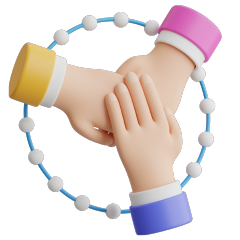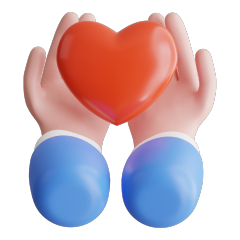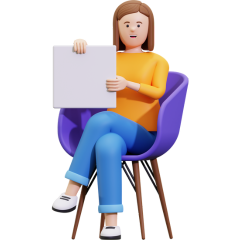Animal therapy vs. Animal-assisted therapy
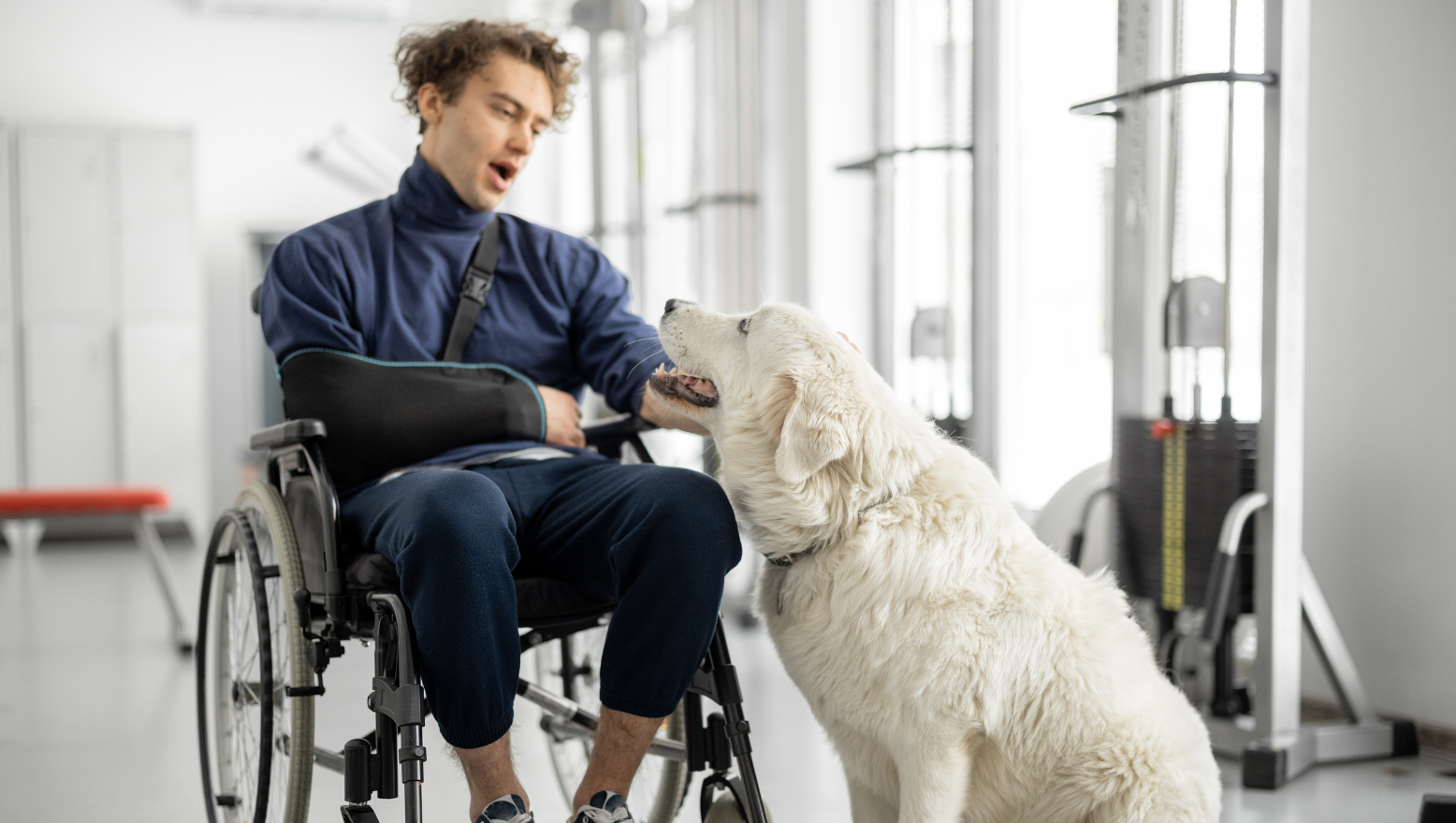
The NDIS does not fund general animal therapy but supports evidence-based animal-assisted therapy. Learn what’s covered, what changed and how participants can still benefit.
Table of Contents
The NDIS recently clarified its stance on the use of animals in therapy, and for good reason. Few things lift the human spirit quite like time spent with a gentle animal, but not every animal-related activity qualifies as an NDIS-funded support. Let’s explore what’s changing, why equine therapy is no longer funded and what animal-assisted therapy actually means for participants.
Understanding the difference between animal therapy and NDIS animal-assisted therapy
The National Disability Insurance Agency (NDIA) distinguishes clearly between animal therapy and animal-assisted therapy.
Animal therapy generally refers to activities designed to provide comfort or enjoyment through interaction with animals, such as petting rabbits, playing with puppies or riding horses. While these experiences can be calming or confidence-boosting, they’re considered complementary or alternative therapies rather than evidence-based interventions. For that reason, animal therapy is not funded by the NDIS.
Animal-assisted therapy, on the other hand, is a structured, goal-directed intervention delivered by a qualified therapist who uses an animal as part of a therapeutic plan. The animal acts as a tool to support engagement and outcomes, much like a piece of adaptive equipment or a sensory aid. When delivered by an accredited professional, Animal-assisted therapy can be funded by the NDIS, provided it’s directly linked to a participant’s goals and disability-related needs.
What happened to NDIS equine therapy?
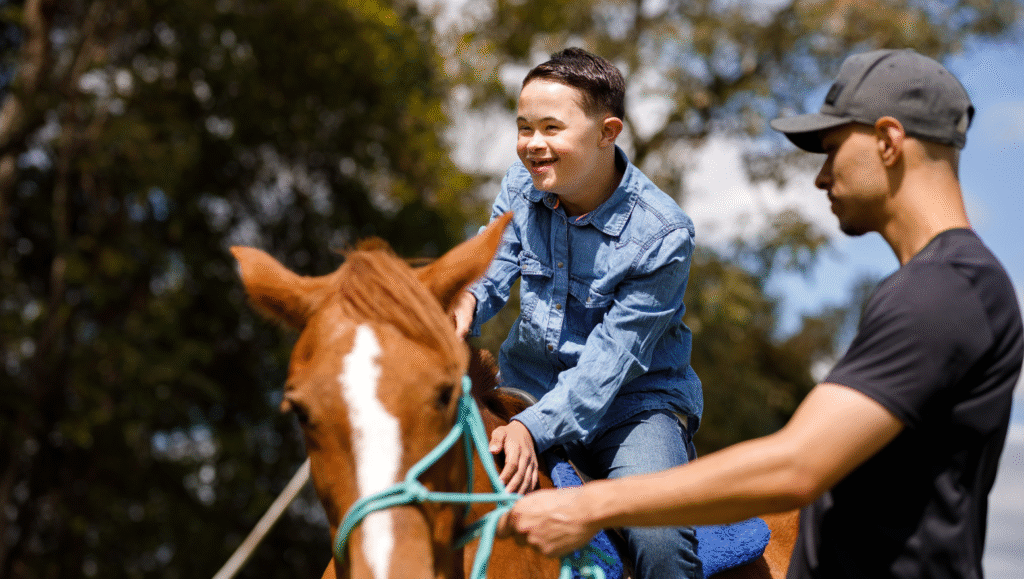
In recent updates, NDIS equine therapy, previously a popular choice for participants, was excluded from funding. The agency clarified that only interventions with strong, evidence-based outcomes can be considered “reasonable and necessary” supports.
Equine therapy falls under the broader umbrella of animal therapies, which include various animal interactions intended to improve wellbeing. While horseback activities can help build confidence and coordination, they’re now categorised alongside non-funded complementary approaches such as aromatherapy and crystal healing.
That said, animal-assisted therapy involving horses may still be supported if it’s part of a structured program run by an accredited therapist (for example, an occupational or physiotherapist) using the animal to achieve measurable clinical goals.
What is covered under the NDIS for animal-assisted therapy?
The NDIS continues to fund animal-assisted therapies/interventions that meet its “reasonable and necessary” criteria, meaning they are evidence-based, goal-oriented and delivered by trained professionals.
This includes:
- Animal-assisted therapy facilitated by accredited practitioners
- Assistance animals (such as guide dogs and hearing dogs) trained to support day-to-day independence
- Creative therapies like music and art therapy, when delivered by registered therapists
In each case, participants should ensure their provider is recognised by the relevant professional body, and that the therapy aligns with their NDIS plan goals.
Getting the right support
Animals can bring remarkable joy and emotional support, but under the NDIS, funding depends on structure and evidence. When guided by the right professionals, animal-assisted therapy can make a real difference not just through companionship, but through purpose and progress.
If you’re interested in exploring NDIS animal-assisted therapy, it’s best to start by discussing it with your allied health team. Your therapist can help determine whether animal-assisted therapy is suitable for your needs and assist in documenting how it supports your functional goals.
Support workers may also accompany participants to therapy sessions or animal-related community activities, helping with transport, communication and confidence-building along the way.
Experience the benefits of animal-assisted therapy
The Leora Healthcare team helps participants make the most of their NDIS-funded supportsl, whether that means joining a community-based group event, exploring recreational activities or accessing animal-assisted therapy sessions that promote growth, connection and improve overall wellbeing.
Our support workers can accompany you to therapy sessions, and our team can help you explore options or connect with professionals who offer animal-assisted therapy. Get in touch with us today to learn more about how we can support your goals.
